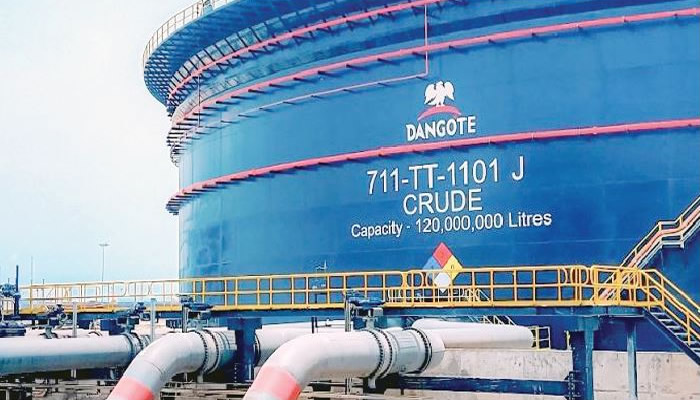
Dangote Refinery has attributed its recent increase in the price of Premium Motor Spirit (PMS), or petrol, to the rising global cost of crude oil.
The refinery raised its ex-depot price from ₦899 to ₦955 per litre, as announced in a statement on Sunday, January 19, 2025.
The statement explained: “This adjustment in our ex-depot price is a direct result of the significant rise in global crude oil prices. As crude oil is the primary input for PMS production, fluctuations in its international price naturally impact the cost of the finished product.”
The refinery highlighted that while global crude oil prices increased by 15%, from $70 to $82 per barrel, it only passed on a 5% increase to the ex-depot price.
Additionally, the premium for Nigerian crude, which is around $3 per barrel, further influenced the price change.
Despite the global price surge, Dangote Refinery has kept its Single-Point Mooring (SPM) ex-vessel price stable at ₦895 per litre.
The refinery’s partners, including Ardova, Heyden, and MRS Holdings, will sell petrol nationwide at ₦970 per litre.
Dangote Refinery also absorbed rising logistics costs to maintain consistent pricing across the country, including the Federal Capital Territory (FCT).
The statement continued: “If we passed on the entire crude oil price increase, the retail price of PMS could have risen to ₦1,150 to ₦1,200 per litre in some areas, compared to the current ₦970 per litre.”
Dangote Refinery reiterated its commitment to affordability, noting that it has absorbed about 50% of the international price increases to minimize the impact on Nigerian consumers.
“Despite these challenges, we remain focused on protecting the interests of Nigerians, striving to shield consumers from the full effects of global price volatility while adjusting to market dynamics,” the statement concluded.
The refinery expressed its gratitude to Nigerians for their continued trust and support, reaffirming its dedication to providing high-quality petrol at competitive prices and contributing to the nation’s economic self-sufficiency.
Advertisement








